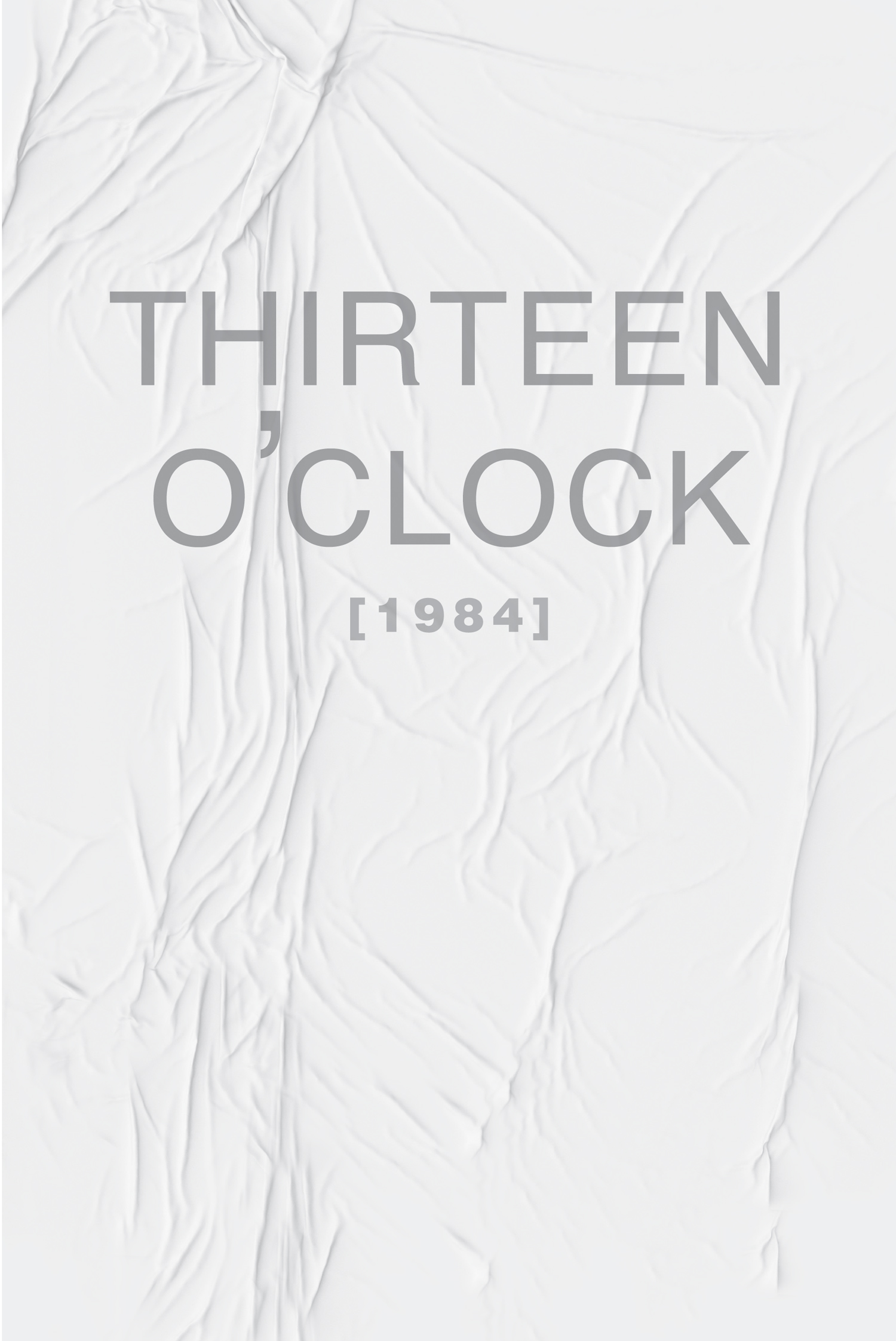
At school, I am teaching George Orwell’s Nineteen Eighty-Four, a work that begins with a clock striking thirteen. It’s the period before lunch, and teenagers don’t learn much on an empty stomach. At least it is better than the period after lunch, when they’re prone to falling asleep—although to be frank, returning to the classroom after an interval of eighteen years, I was taken aback by seeing a few students dozing off at any time. I am too vain to sheet this all home to the dreariness of my teaching. There are other reasons. Some of the students have part-time jobs that keep them up late midweek, which is a sad state of affairs. Some of those need the money to pay for their phone and Internet usage, which keeps them up even later once they get home. The deputy head has discovered that students struggling at school are invariably spending two or three hours a night online, sometimes longer. This is not just exhausting. It also strikes me as lonely, spending so much time with friends who may or may not exist.
Orwell’s book is a chilling study of a world deprived of language and memory. His vision of the future is in many ways an account of our present. Our public vocabulary is shrinking as so much conversation has become an exchange of clichés. The very use of the word excellence, for example, has become a sign of mediocrity. The culture we are part of is shifting from one based on memory to one based on retention. The difference is this. If you take twenty dollars out of an ATM, that little factoid will be retained for all eternity in the bowels of some machine. But if you then take the twenty dollars and buy some flowers for your beloved, a gesture of reconciliation or renewal or fondess or hope, the flutter in your heart can only be remembered by you and the person close enough to feel those exquisite little vibrations. It can’t be retained. Memory is a human art, part of a relationship. Retention is a form of management. The devolution from a memory culture to a retention culture is an understandable way of coping with the sheer excess that is exhausting us all. But it is sad. The word exhaustion has its roots in the Latin haustus, which means a drawing of water and, by association, a drink. Exhaustion is the drought of the soul. It is a parched land.
The capacity for memory and language are both formed in sleep. All our lives, memory and language are consolidated in sleep. A culture that doesn’t sleep properly uses more words to say less and has less capacity to remember. It may provide plenty of exhausting stimulation to distract us from our real needs. It may want us to live like bees in a bottle. But take a minute to look at a bee in the open air hovering over a flower. Observe the art of its stillness. This is when the bee is creative.
In Nineteen Eighty-Four, one character, O’Brien, a party member who seems for a time to offer a ray of hope to the depressed hero, Winston Smith, says to Smith, “We shall meet in the place where there is no darkness.” Smith is uplifted by these words and sustained by them. But it turns out that the place where there is no dark is a vision of hell. It is the Ministry of Love, a vast windowless bunker operated by the Thought Police where torture and brutality take place. It is a place of despair and inhumanity. The lights are never turned out. Darkness would have been a mercy.
It concerns me that the young people I teach are growing up in a world of blinding light. They spend hours looking into little screens. Consider this difference. When you read something on a screen, such as on a computer, you are looking into a source of light. Light triggers various things in the brain, among them the creation of cortisol, the stress hormone, in the adrenal gland. On the other hand, if you read text in a book, you are looking at black ink. This has the opposite effect in the brain. Darkness facilitates the release of melatonin from the pineal gland. In some ways, melatonin does the opposite of cortisol: it is the hormone that urges calm, the one that regulates the circadian rhythm and helps the central nervous system not to go into overload. This is why reading a book in bed before going to sleep is a physically different experience from sitting up against the pillows with your laptop. Different hormones are called out to play. Cortisol is a good and necessary thing in its place. But we need breaks from it as well. Students who spend their lives looking at screens as opposed to books are learning in a more stressful environment. I have no idea why schools encourage this.
I tell my students that I prefer them to submit handwritten work. It’s not that I want to make plagiarism more difficult. It’s not even that, if they work on the computer, I have no idea if they can spell or not. It’s really because I want them to have a closer relationship with their own work. I’d like to restrict access to the stress on which the world expects them to become addicted. They look at me like I’ve come from another planet.